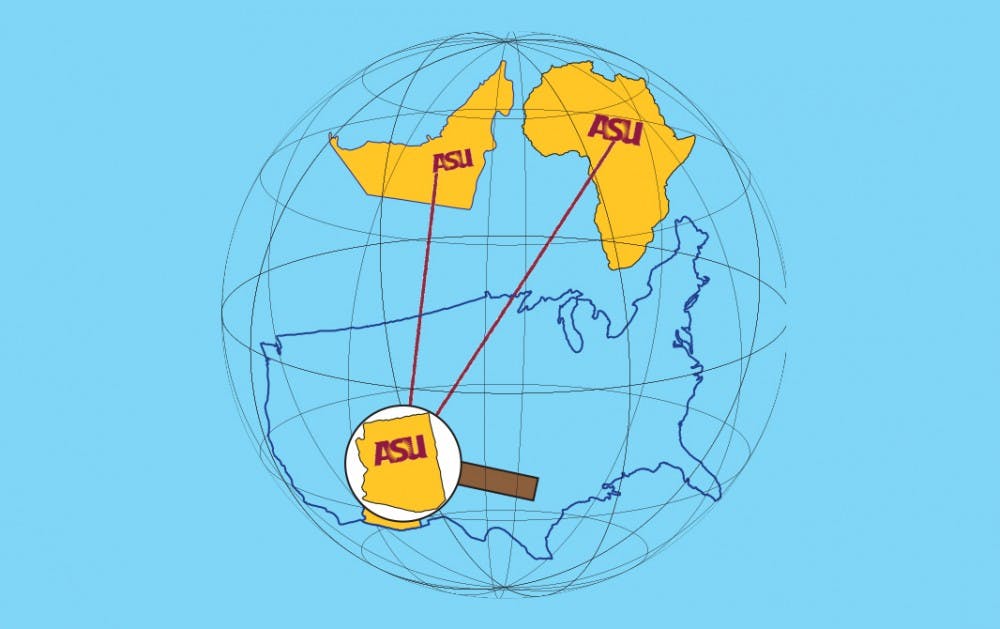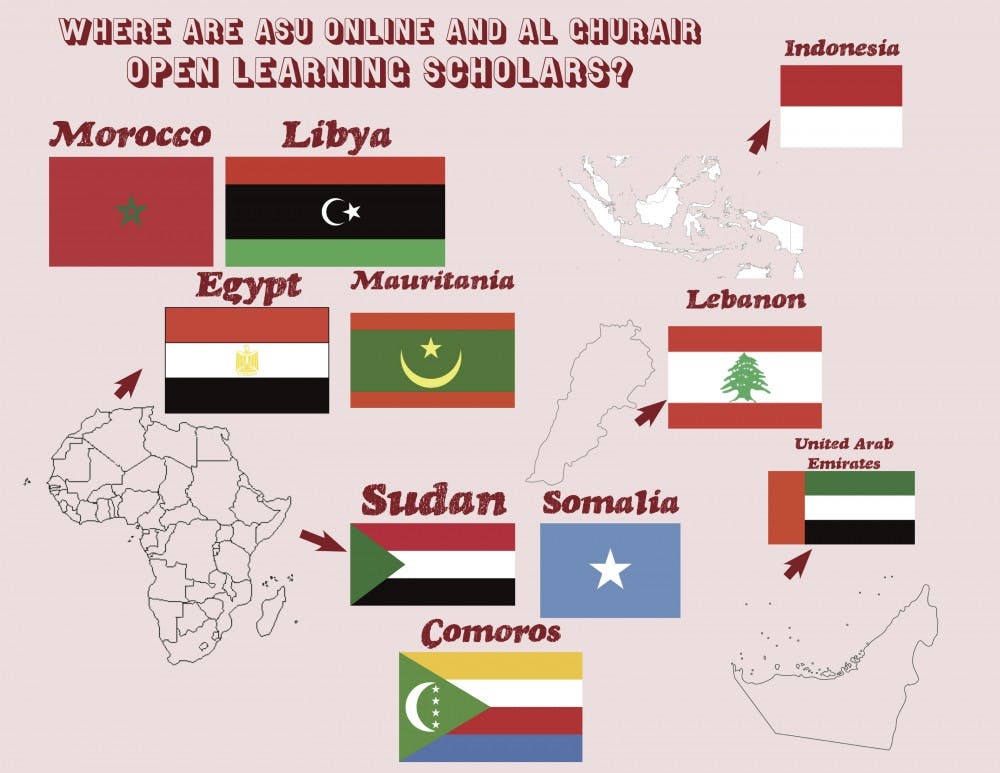ASU Online and the Al Ghurair Foundation for Education are expanding on their Spring 2018 partnership in an attempt to bring more education options into the Arabic world.
The program is growing rapidly, having only started in January 2018 yet already tripling its enrollment to 25 students for the fall 2018 semester. As for the following semester, ASU Online is seeking to grow the program, but it is at the whim of how many students are accepted into the Open Learning Scholars program by Al Ghurair.
The Al Ghurair Foundation focuses on bringing quality education to the Arabic world and has partnered with ASU Online to provide 22 countries with access to affordable master's degrees.
Lisa Manning, project coordinator for the Al Ghurair Foundation partnership, said that future goals will focus on growth and simplifying the process to admit more students into the program.
“Each semester we hope to bring in more students," Manning said. "There are three application cycles a year, so that’s the big goal: to make sure that more students have the opportunity."
Scholars are spread across Northern Africa, the Arab Gulf and Levantine region in countries such as Morocco, Libya and Egypt.
Manning also said that this semester introduced a new master of computer science online program. And a new medical nutrition program replaced the online nutrition dietetics program. At the moment, no new programs are planned for spring.
Tuition in the program is covered by the Al Ghurair Foundation, which uses its operating budget of $1 billion to assist students.
“All of the scholars that are accepted to ASU and are awarded the scholarship have access to the same student services that our core online population has,” said Carrie Lingenfelter, media relations manager for EdPlus at ASU. "So they work with a success coach."
ASU President Michael Crow participated in a panel alongside Al Ghurair CEO Maysa Jalbout when the program started in April to discuss the partnership.
“We educate the worthy, we educate the smart, we educate the gifted. We build excellence as the measure of exclusion as opposed to impact, and so this is a cultural problem," Crow said at the ASU + GSV Summit Global Panel.
Lisa Manning said her job with this program is to make sure all the pieces fit together.
“The Open Learning Scholars is the only purely online program,” Manning said. "They also have the STEM program which sends students into ground campus degrees at universities around the world, but all of it is to fulfill his mission of improving access (to education) for the youth in his region."
Students in this program are required to pass three English proficiency exams and maintain a 3.0 GPA while pursuing their degree at ASU.
Manning said many of the students in the program are also working to support their families. She has made good friends with some of the students while working closely with them.
“I’m incredibly proud of the hard work and determination that the students exhibit,” Manning said. “I’m excited to see how they use these degrees to impact their communities (and) their regions.”
Sara Eisa is one of the scholars in this program currently pursuing a Master's of Science in biomedical diagnostics out of Abu Dhabi, United Arab Emirates. Her course load consists of classes like Regulation of Medical Diagnostics and Foundations of BMI methods.
Eisa is enjoying her current classes with students from all over the world. She pursued Biomedical Engineering in her undergraduate studies and found this to be a way to continue that.
She also works a full time job as a high school teacher for a class called Creative Design and Innovation.
“Even though my day is usually busy, I enjoy it very much and benefit from it," Eisa said in an email. "In the morning, I'm usually at work. I come back home in the late afternoon. I try to relax a little bit with the family, then I start hitting the books to catch up with my studies.”
Eisa will often complete her coursework over the weekend as well. She’ll be graduating in the summer of 2019 and sees this program as a stepping stone for her future.
“I plan to continue with my Ph.D. degree after I'm done with the Master’s,” Eisa said in an email interview. “I believe that there is always something out there to learn and I want to try to capture and have as much knowledge as possible.”
Reach the reporter at egilchr1@asu.edu or follow @Ethan_G45 on Twitter.
Like The State Press on Facebook and follow @statepress on Twitter.





